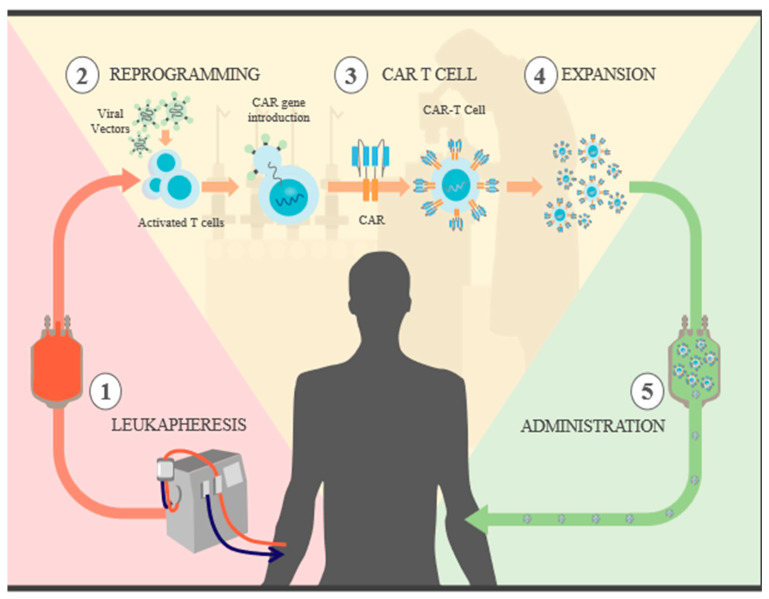Figure 1.
CAR T cell synthesis: 1. recognize specific antigens expressed on tumor cells. Leukapheresis: blood is extracted from the patient, and both CD4+ and CD8+ T cells are selected. 2. Reprogramming: the isolated T cells are cultured and then exposed to antibody-coated beads to activate them. CAR genes are introduced through different viral vectors, which results in permanent genome modification and CAR expression. 3. CAR T cells: now, the T cells are capable of recognizing and attacking specific tumor antigens. 4 Expansion: with the goal of generating a sufficient number of CAR T cells for therapy, the cells go through several rounds of divisions in different culture media. They are then cleansed and concentrated, and a sample is taken for quality control. 5. Administration: prior to the reintroduction of CAR T cells, the patient undergoes “preconditioning” chemotherapy for lymphodepletion, which reduces immunosuppressive cells that could slow the expansion of CAR T cells; in addition to releasing proinflammatory cytokines that promote the activation of CAR T cells, once infused, they are able to initiate their destruction.

